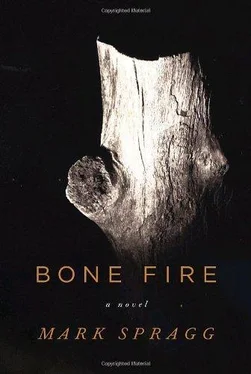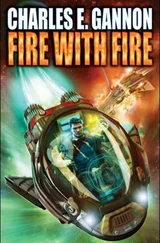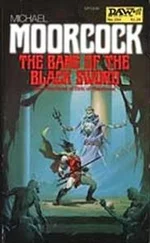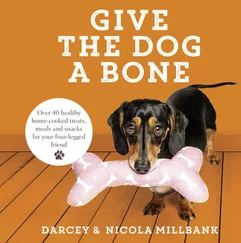“You used to come in here all the time when you were little. I forgot how much I liked it.”
She found his hand. “Me too.” His grip had gotten stronger.
“You smell horsey.”
“I was saying my good-byes,” she said. “I decided to go to Chicago. For the clay residency.”
“I was hoping you would. I would’ve been disappointed if you didn’t.”
The wind gusted and a series of pinecones fell against the roof, rolling into the gutter.
“They’ve got every kind of kiln you can think of,” she said, “and a gallery, and Marin said Paul can almost walk to school and I can take the ‘L’ down to Oak Park.”
Another gust of wind and more pinecones on the roof.
“I never said so, but I didn’t think Africa or Billings, neither one, would work for him.” He cleared his throat and pushed up higher against his pillows. “We’re going to manage here just fine. I don’t want you to worry.”
“I’m going to.”
“Then try to limit yourself,” he said. “Maybe just an hour in the mornings.”
She turned onto her side. “You don’t think Marin bribed them, do you? To accept me for the whole year?”
“She just sent the pictures she took.”
“You’re sure?”
“Marin wouldn’t do something like that.” And then, as though it had just occurred to him: “You aren’t taking them along, are you?”
“No. I made them for you.”
“I’ve gotten fond of that little snake-faced girl,” he said. “The others too.”
She slipped up against him, her head on his shoulder. “I’ll miss you.”
“I know you will.” He stroked her hair. “Why wouldn’t you?”
HE HAD A BREAKFAST of cereal and skim milk. A breeze was coming through the window, and he sat listening to the notepaper snapping against the cabinet door. She always taped it up to the left of the sink, a printed-out reminder that she loved him, every day since they’d come back from the hospital. He thought he’d have a look at it later.
When he returned the milk carton to the refrigerator, he slid the meals she’d stacked up in casserole dishes to the side. Two plain, saltless lunches and dinners. Nothing fried. No sauces. He’d gotten used to them, but she was gone for the day and he’d made other arrangements.
She believed in reincarnation, and they’d agreed to come back as brother and sister again. He told her that if he got to pick, he sure wanted another run at it.
He drank two cups of coffee from the thermos she’d left on the counter, rinsed the dishes and positioned himself in the center of the kitchen. He swung his arms around him, cocking his hips left and right, and everything seemed to be working better than it had for some time. He felt an uncommon clarity and didn’t hurt anywhere, so decided not to take his pills. He wanted to see what would happen.
He dressed, sat down by the new phone she’d bought and called McEban, running a finger over the little strip of duct tape she’d stuck on the console next to a button that would dial her cell phone in case he had an emergency. He’d promised her he would, but that was a lie. He wasn’t about to ruin her one night away.
Then, when he’d made his plans with McEban, he called Curtis Hanson. “I’m ready,” he said, and hung up.
He picked up his cane, put on his hat and started down the drive. It was a fine, late-summer day. The sun warm, a light breeze. He could hear the grasses rustling alongside the road and whistled a few bars of his favorite birdsong, and a meadowlark sang back.
When he reached the turnout at the mailboxes he could hear the Cummins diesel idling, throaty and even, and Curtis helped him up into the cab.
“I didn’t make you wait too long, did I?” he asked.
“No. I just got here myself.”
They eased down through the borrow ditch and out across the pasture in four-wheel-drive, listening to the sage scraping against the undercarriage. They could smell it.
He dug the folded bills out of his pocket and held them up between them. “I need to give you something for gas.”
“I’m your neighbor, for Christ’s sake.”
He put the money away. He could feel the warm press of sunlight moving across his chest as Curtis turned them in a slow arc, then backed around.
“That level stretch there?” Curtis asked. “Just south of Mitchell?”
He nodded. “It’s where I pictured it.”
Curtis dragged a shovel off the truckbed, and Einar stood leaning into the fender, listening to him hacking away at the prairie grass. Then the squeal of the gin poles pivoting back, Curtis locking them in place.
Einar started back along the side, above him the cable groaning in its pulley, the electric winch whining. He laid his hand open against the steel edging of the flatbed and felt the truck squatting against the torque.
“You might want to take a step back,” Curtis said.
“Am I in your way?”
“You’re standing where you needn’t be if this cable snaps.”
He worked around to Curtis. “It’d be a funny way to die, wouldn’t it,” he said, “squashed by a gravestone?”
“It’d damn sure make a good story if a man could tell it right. Here, reach out to me.” Curtis guided his hand onto the winch lever. “Just ease her off a little when I say something.”
He stood waiting.
“Just a tad now.” Curtis grunted, shouldering the marble into the slot he’d dug, and then the chassis rose up off the leafsprings. “That’s got it,” he said.
He joined Curtis at the back of the truck. “Have you pulled the tarp off?”
“I just did.”
He knelt in front of the black marble, fingering the lettering and whispering: Alice Conners Clark, born March 2, 1927, died April 14, 2007, beloved & remembered. He sat back on his heels. “Thank you,” he said.
“You ready for your dinner now?”
“I’ve been thinking about it.”
Curtis got him settled in the shade on the old weathered chair, and sat with him, leaning back against the cottonwood, and they ate their corned-beef sandwiches and pickles, sipping cans of cold beer.
“Miss Clark there”-Curtis was talking with his mouth full and coughed-“I don’t believe I ever met her.”
“You never did. She was a friend of my sister’s.”
“I’m glad to hear it,” he said. “I was afraid she was somebody I’d forgot.” He carried their trash up to the cab. “You want me to run down and fetch Marin?”
“She’s up to Billings, her and Marlene Silas. For the aviation show.”
“How’s she know Marlene?”
“They met at that yoga class for seniors at the rec center.” He pushed up out of the chair. “I guess they started talking and found out they’re both off their rockers for airplanes.”
“So this here’s like a surprise?”
“That’s it, exactly.”
Curtis dropped him off at the house in the early afternoon and he napped for an hour, then woke thinking he’d heard Sammy wanting out. He was already standing in the hallway before he remembered Marin had taken the dog with her. He held his breath, listening harder, but whatever made the noise had now stopped.
He sat in the living room listening to a scratched 1955 recording of Her Majesty’s Regimental Band and Massed Pipers. It was a favorite of his and Mitch’s that they used to play on winter evenings when the wind howled under the eaves and the house groaned like a floundering ship. They’d turn the music up loud, sipping bourbon, smoking cigarettes and joking that bagpipes were the only way to fight back against the weight of the long, cold nights. There wasn’t a drop of Scots blood in either one of them.
In the late afternoon he wandered into Griff’s room eating the piece of chocolate cake Curtis had left, his free hand cupped under his chin to catch the crumbs. He licked his fingers clean and felt around in her closet, finding a hooded sweatshirt that smelled of her perspiration, of clay and horses, of the lightly scented perfume she wore. He sat on the corner of her bed holding the thing to his face, inhaling. He expected this would make him feel maudlin, but he didn’t. He felt simply loved, as though she were still there, whispering something comforting, saying something funny.
Читать дальше












